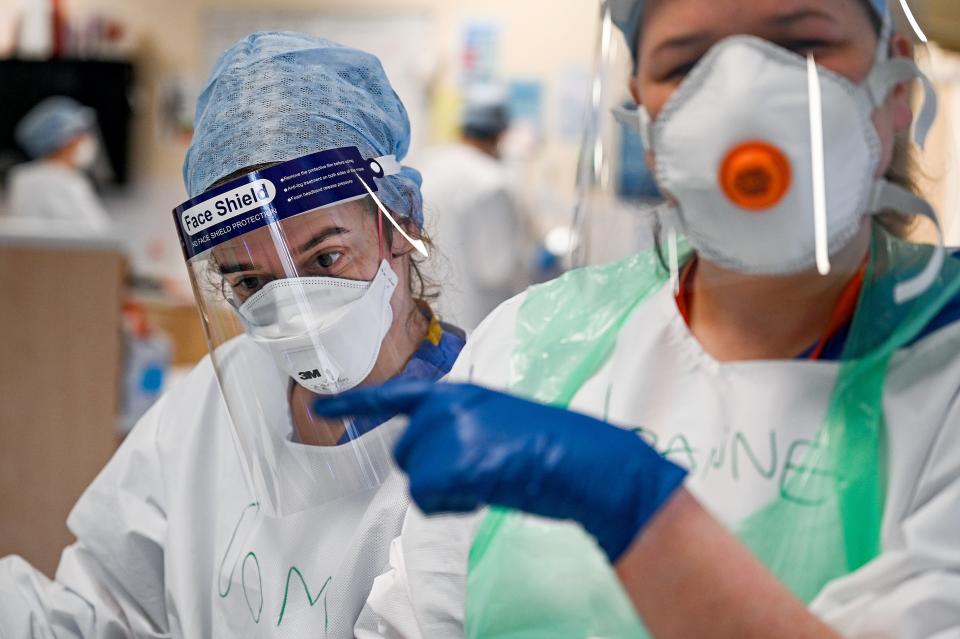NHS Covid guidelines ‘fundamentally flawed’ and need replacing, says nursing union

An independent report commissioned by the Royal College of Nursing has deemed government Covid-19 NHS infection control guidelines “fundamentally flawed” and in need of replacing in order to protect front-line healthcare staff.
Crucially, the report, which was written by independent experts, concludes that NHS guidelines failed to consider airborne infection, a key way the virus is transmitted.
The experts concluded the review provided only a “superficial account” of the available Covid-19 evidence.
This comes only two weeks after Boris Johnson was told that NHS staff were at risk from airborne coronavirus, and must act to “prevent the further loss of lives”.
The report analysed a literature review which underpins those guidelines and found that only four of the essential 18 criteria were met.
In their report, Dinah Gould, an honorary professor of nursing at London’s City University and Dr Edward Purssell, also from City University, said that since the beginning of the pandemic, “updated evidence indicates that aerosol spread is much more significant and the original advice from the WHO has been superseded”.
They added: “The UK guidelines are still based on this outdated evidence, however. They urgently need thorough revision and replacing.”
The government guidelines omit the importance of ventilation and urge the use of higher grade PPE only in high-risk settings such as on an intensive care ward.
But research now suggests that airborne transmission – where tiny droplets of saliva from people talking, calling out or coughing can remain suspended in the air – can be a particular problem in poorly-ventilated rooms.
This has caused concern among nursing staff, especially with the emergence of new, more infectious Covid-19 variants.
In England and Wales, 919 care workers had died because of Covid-19 as of 28 December last year. 429 of these were healthcare workers while 490 were social care workers
One community nurse who works at a trust in England said: “I’m at my wits’ end. I’ve had Covid-19 before and really don’t want to get it again.”
The nurse also said that while they had a higher-grade FFP3 face mask, their trust wouldn’t let them use it.
Dame Donna Kinnair, chief executive and general secretary of the Royal College of Nursing, said: “This nurse is raising the alarm on behalf of countless others. We have been battling this pandemic for more than a year now. ‘Following the science’ is a hollow boast when we have evidence showing the flaws.
“The report and its findings must launch an official review and not be swept under the carpet as an inconvenience. Health care workers need to know everything possible is being done to keep them protected.”
The government says that emerging evidence and data is continually monitored and reviewed and that the guidance is amended accordingly.
A spokesperson for the Department of Health and Social Care told The Independent: “The safety of our NHS and social care staff has always been our top priority and we continue to work tirelessly to deliver PPE to protect those on the frontline.
“PPE recommendations were updated in January 2021, and are agreed by an expert group of clinicians and scientists from across all four UK nations based on clinical evidence. The guidance on PPE is kept under close review.”
Read More
Frontline NHS staff at risk from airborne coronavirus, Boris Johnson warned
Workers were left to risk their lives as pandemic began because of low PPE stockpiles, report finds

 Yahoo Finance
Yahoo Finance 